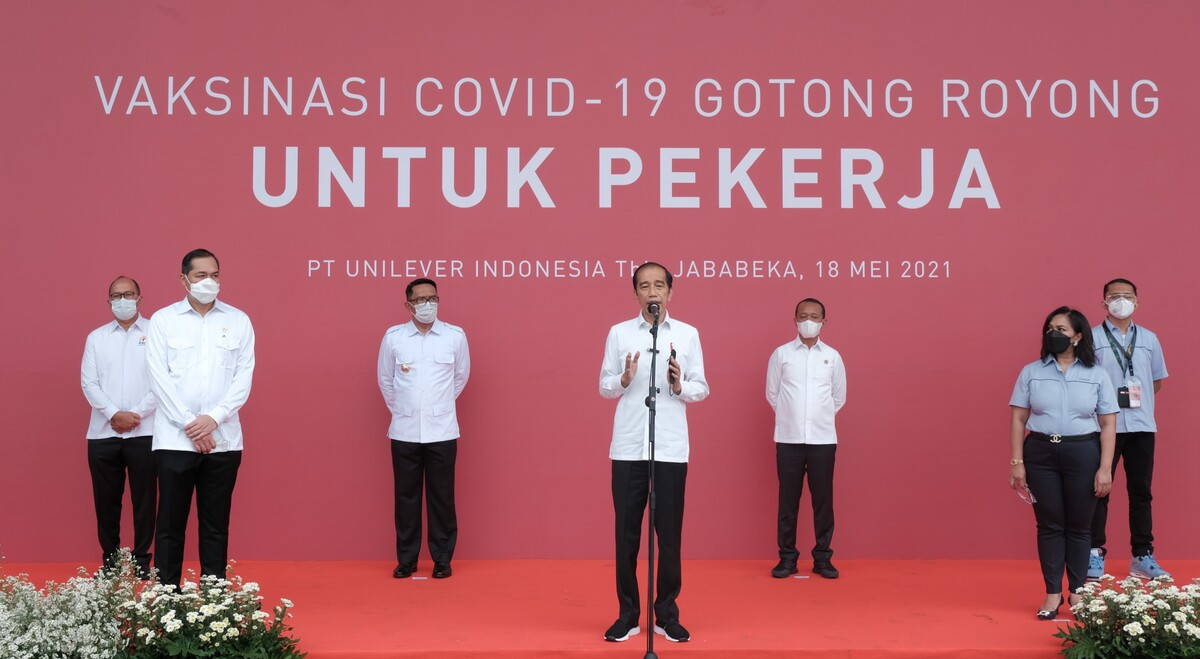Popular Reads
Top Results
Can't find what you're looking for?
View all search resultsPopular Reads
Top Results
Can't find what you're looking for?
View all search resultsGovernment to bring in COVID-19 emergency measures until July 20
There has been a near vertical climb in virus cases in the world's fourth most populous nation in recent weeks, prompting health experts to warn that the outbreak could be as bad as India's devastating second wave if tighter measures are not introduced.
Change text size
Gift Premium Articles
to Anyone
P
resident Joko "Jokowi" Widodo said on Thursday that Indonesia will bring in emergency measures running until July 20 aimed at containing an exponential spike in coronavirus cases that has strained the country's medical system.
There has been a near vertical climb in virus cases in the world's fourth most populous nation in recent weeks, prompting health experts to warn that the outbreak could be as bad as India's devastating second wave if tighter measures are not introduced.
"With cooperation from all of us and the grace of God, I'm certain that we can suppress COVID-19 transmission and restore people's lives quickly," said Jokowi as he announced the stricter measures.
The measures, which will start on Saturday, aim to halve the current number of daily virus cases to below 10,000, and include tighter restrictions on movement and air travel, a ban on restaurant dining and closure of non-essential offices, according to a government document.
They will be applied on the most populous island of Java and on the tourist island of Bali. Further details of the measures will be announced by Coordinating Maritime Affairs and Investment Minister, Luhut Binsar Pandjaitan, later on Thursday, officials said.
Read also: Java, Bali brace for emergency lockdown
Grappling with the worst outbreak in Southeast Asia, Indonesia has reported a series of record daily COVID-19 cases since mid-June, with the 21,807 new cases on Wednesday, its biggest daily increase.
Indonesia has recorded 2,178,272 cases overall, among the highest number in Asia, and 58,491 deaths.
Up to now, Jokowi has been reluctant to bring in measures that might hit the economy and news of the curbs wiped out gains on Indonesia's main stock index that had earlier been up as much as 0.9 percent.
Read also: Jokowi vows to maintain balancing act amid second wave
The highly transmissible Delta variant that caused a spike in cases in India in April and May, overwhelming healthcare facilities and swamping crematoriums, is spreading in Indonesia.
Hospitals across the crowded, main island of Java are being pushed to the brink. In Jakarta, some emergency wards have been moved to tents erected in hospital car parks to free up isolation rooms, while residents have formed queues to buy oxygen tanks for relatives being treated at home.
The bed occupancy rate in the city's hospitals hit 93 percent this week, with hospitals across Java also edging toward full capacity.










